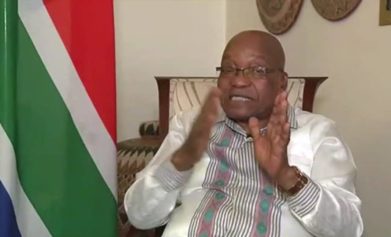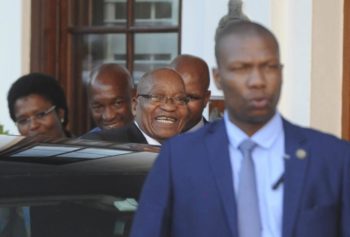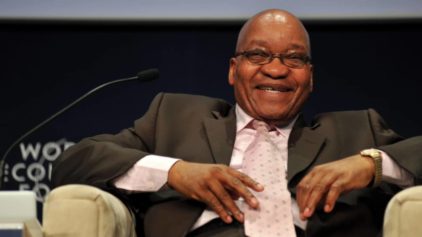South Africa has joined the U.S., France and several other African nations in pledging to commit troops to stop the Seleka rebels from overtaking the Central African Republic.
South African President Jacob Zuma said his nation will send 400 troops “to render support in fulfillment of an international obligation of the Republic of South Africa towards the CAR.”
The rebels have agreed to engage in talks with CAR government officials this week in Gabon’s capital, Libreville, mediated by officials from the African Union. But they continue to attack more towns — randomly shooting villagers and raping women — on the way to the capital of Bangui. The actions have prompted alarmed calls from aid groups, who are saying they are having difficulty getting humanitarian assistance to the people of CAR.
“An estimated 316,000 people are living in the affected areas, and some 700,000 persons in Bangui are at further risk of an escalation in fighting,” the U.N. Office for the Coordination of Humanitarian Affairs said on Wednesday night.
“There are reports of people fleeing their homes for safety from a number of areas, including Bangui, in and around Ndélé, where the fighting initially broke out, and across the borders to the Democratic Republic of the Congo and to Cameroon,” it said.
As CAR President Francois Bozize has said he is willing to share power with the rebels, Nkosazana Dlamini Zuma, chairwoman of the AU, warned the rebels that they will face sanctions and complete isolation if they try to seize power by force.
Bordering the troubled nations of Sudan and the Congo, the Central African Republic, with a population of about 4.4 million, is a former French colony that has experienced considerable political discord since winning its independence in 1960. It was not until 1993 that the country held its first multi-party democratic elections, after being ruled by a series of military leaders who took power by force.
Though the current president, Bozize, won democratic elections in 2005 and again in 2011, he came to power by force in 2003 by overthrowing the previous president, Ange-Félix Patassé. With such a history, it does not come as a surprise to many that a new generation of rebels has emerged to seize power from Bozize.
The rebel group, known as Seleka, made up of factions from three former armed groups, accuses Bozize of failing to honor a 2007 peace deal that stipulated they would be paid if they laid down their arms.
CAR has an abundance of mineral resources such as oil, gold and diamonds, but much of it is bought and sold in an underground market that does not benefit most of CAR. It is considered one of the poorest countries in the world, although its Human Development Index ranking of 179 out of 187 countries is considered deceptive because many CAR residents sell their excess food crops and homemade alcohol on the underground market.
The U.S. and France were already conducting military operations in CAR before the rebel offensive threatened to topple the government of President Bozize.
The U.S. has at least 100 Special Forces troops in the region pursuing fighters of Joseph Kony’s Lord’s Resistance Army. President Obama advised Congress last month that he had ordered a “standby security force” of 50 troops to CAR, citing a “deteriorating security situation” that had forced the U.S. to withdraw embassy staff and other American citizens from Bangui.
France has also had soldiers in CAR, its former colony, on a near-continuous basis since the African nation’s independence in 1960. In recent days, Paris has boosted its existing 250-troop deployment to nearly 600.
In Bria, a major center for the CAR diamond industry, aid agencies have pulled most of their staff out.
“Internally displaced people are very much in need of health services and we are particularly concerned about women and children,” Catherine Ainsworth, programme officer of International Medical Corps U.K., told the Guardian. Ainsworth returned from Bangui to London just before Christmas. “The key issue is limited humanitarian access. The one doctor we have in Bria is running out of stock of medication against malaria and diarrhea.”
Ainsworth explained that she was also worried about the effect that the conflict would have on the planting season. “If there is no planting, it can lead to a ruined harvest, as we saw in 2012,” she said.


